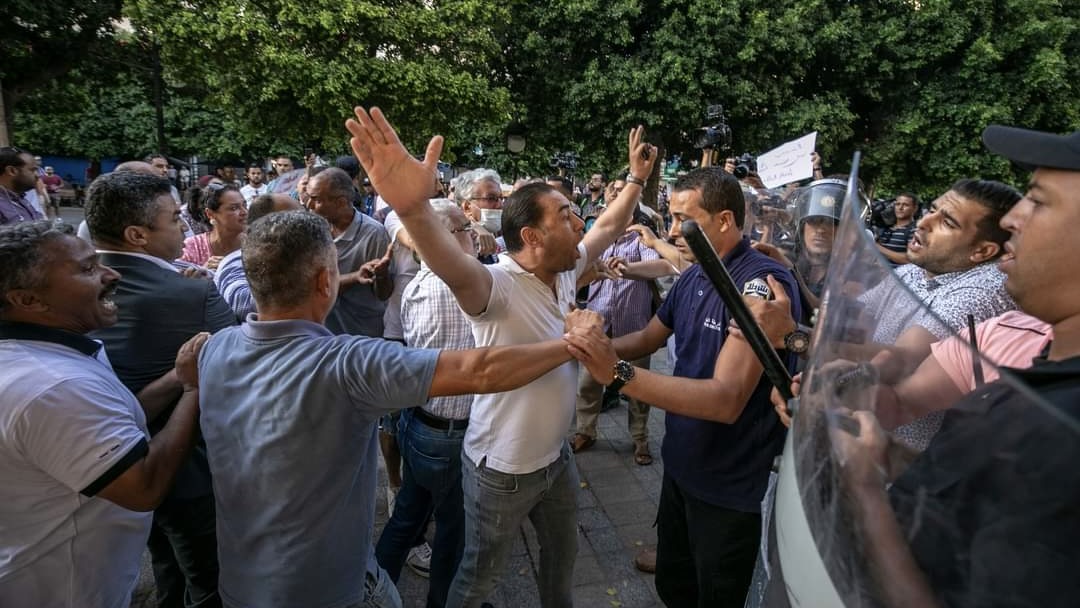Tunisian security forces violently repressed a massive protest in the country’s capital on July 22 against the moves by President Kais Saied to further undermine democratic institutions in the country. According to human rights organizations, police repressed protesters who had gathered at the emblematic Habib Bourguiba Street in the center of Tunis by hitting them with batons and launching tear gas at them. Several people injured during the repression were hospitalized, and police arrested nine people.
Among those arrested are feminist rights activist Olfa Baazaoui of the Workers’ Party of Tunisia, human rights and LGBTQ+ rights defender Saif Ayedi of Damj, Aziz Ben Jemaa of the Workers’ Party of Tunisia, and other progressive activists.
Their arrests were widely condemned by diverse civil society organizations. Damj, the Tunisian Association for Justice and Equality, released a joint statement with organizations such as the Tunisian Association of Young Doctors, the Tunisian Organization Against Torture, and others, condemning the repression and demanding the immediate release of the protesters.
Denouncing the repression, they stated that “police repression had replaced democratic mechanisms” and emphasized their support “for all forms of demonstration, protest, assembly and expression, which they consider one of the most important gains of the revolution.” They added that protest is the central mechanism to exert pressure on the ruling system in order to “review development policies, combat corruption, terrorism and all the elements of tyranny, and guarantee respect for rights and freedoms.”
Egalité, the women’s organization to which detained activist Baazaoui also pertains, wrote in a statement that they hold President Saied responsible for the wellbeing of the detained activists. They also called on all female citizens “to boycott the referendum on a constitution that threatens rights and freedoms and dedicates it to the dictatorship of the individual and the return of the police state with force, which has been clearly and tangibly proven today.”
In a statement released by the Workers’ Party of Tunisia shortly following the arrests, they called for the protester’s immediate release and alerted that the detainees had been deprived of visits from their lawyers and some had been denied medical treatment.
The protest action was held three days ahead of the national referendum wherein Tunisians will vote on a draft constitution presented by Saied. A large number of opposition parties have called for a boycott of the referendum in rejection of the undemocratic nature of the new constitution’s writing process, as well as its proposals. The current constitution, which was adopted in 2014, is seen as a significant achievement of the revolution that overthrew dictator Zine El Abidine Ben Ali in 2011. A major objection to the draft presented by Saied is the proposal to do away with the division of executive power between the president and prime minister, concentrating power solely in the hands of the president.
The referendum on the constitution comes after several other moves by Saied which opposition parties have alleged undermine the democratic institutions in the country. These include the dissolution of judicial bodies, dissolution of the parliament, the persecution of leaders from major opposition parties, and the dissolution of other state institutions. These measures which began with the dissolution of parliament on July 25, 2021 have been met with constant protest from diverse civil society organizations and political parties.





